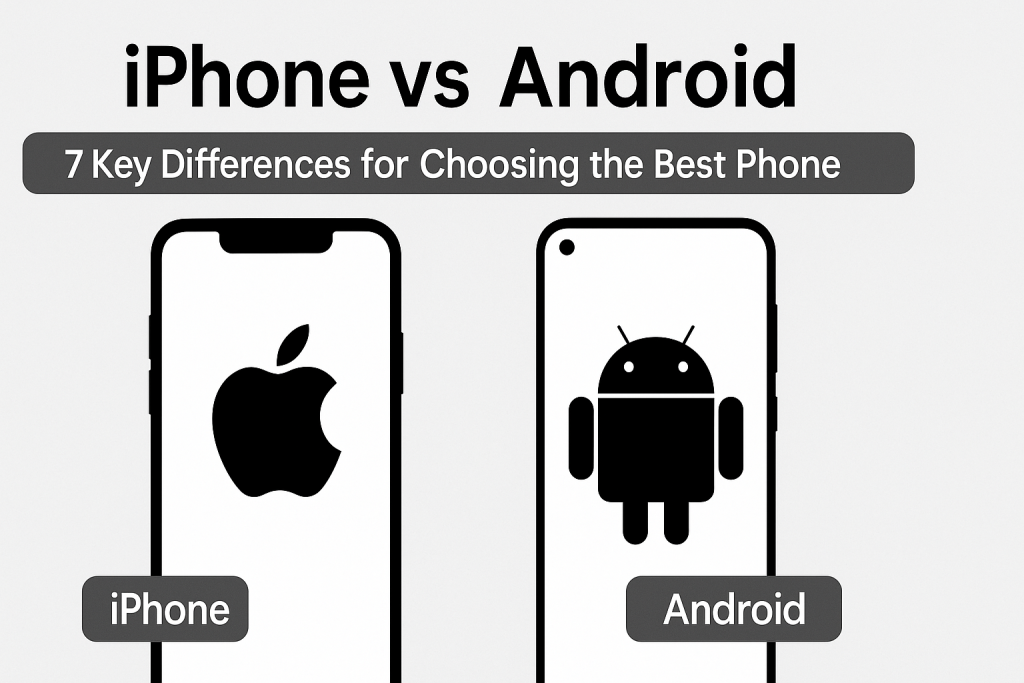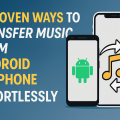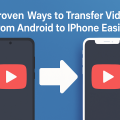Introduction: The Smartphone Showdown
The debate between iPhone vs Android has raged for more than a decade, with users fiercely loyal to their chosen operating system. Whether you’re shopping for a new device or simply curious about which platform offers the best features, this comprehensive guide examines the most important differences to help you decide which phone is right for you. We’ll explore everything from performance and customization to security and value, so you can make an informed choice.
With hundreds of millions of users globally, both iPhone (running iOS) and Android have evolved to offer outstanding user experiences. However, they cater to different priorities, budgets, and preferences. Let’s dive into the seven key factors that separate these giants and discover which might be better for you.
1. User Experience and Interface Design
iPhone: Simple, Consistent, and Intuitive
Apple’s iOS is known for its clean and streamlined interface. Each iPhone offers a nearly identical experience, regardless of the model, with a consistent look, feel, and navigation pattern. For users who value ease-of-use and minimal learning curve, iPhones deliver a reliable and straightforward user experience. The design philosophy centers around simplicity, making iOS an ideal choice for users of all ages.
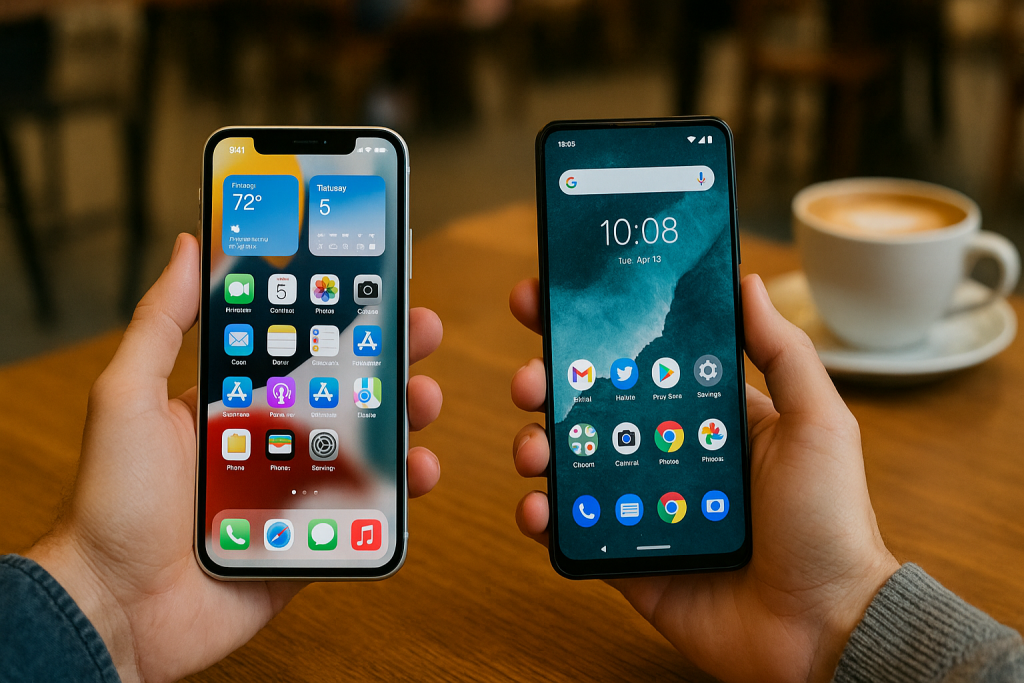
Android: Flexible and Customizable
Android’s biggest strength lies in customization. Users can personalize their devices with widgets, launchers, icon packs, and more. You can adjust nearly every aspect of your phone’s appearance and functionality, from the home screen layout to the default apps. For tech-savvy users or those who crave a device that feels uniquely theirs, Android offers unmatched flexibility.
Practical Tips
- Choose iPhone if you prefer a uniform, easy-to-use interface with minimal setup.
- Opt for Android if you enjoy tweaking settings or want your phone to reflect your personal style.
2. Hardware Variety and Quality
iPhone: Premium Build, Few Choices
Apple produces a limited number of devices each year, focusing on premium materials and design. The build quality of iPhones is consistently high, often featuring aluminum, stainless steel, and glass. However, the selection is limited, with only a handful of models available at any given time, targeting the mid-to-high-end market.
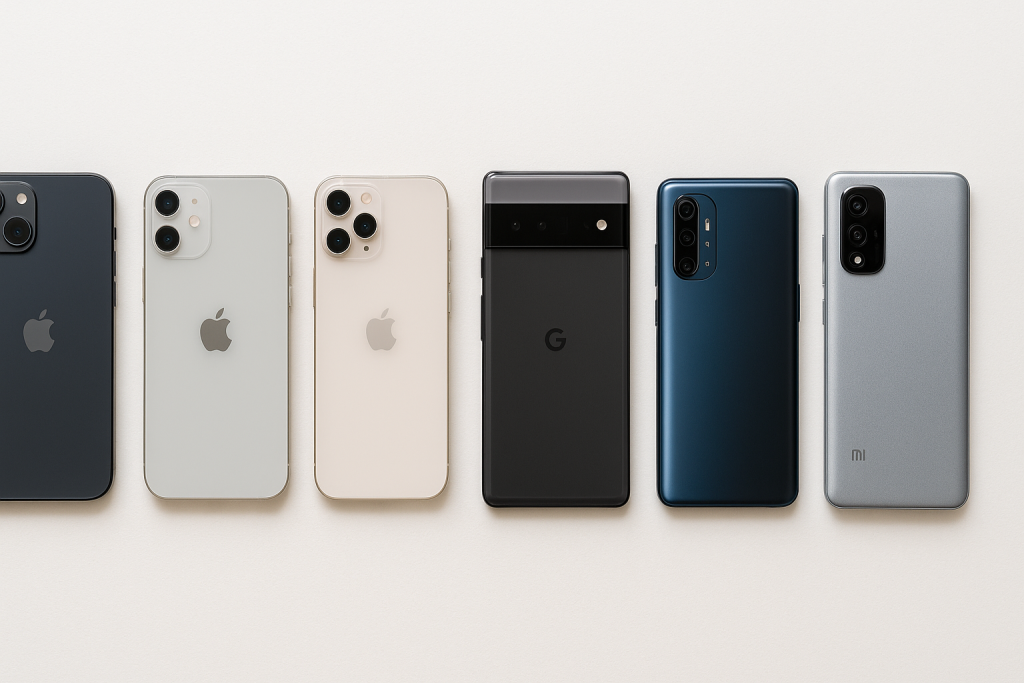
Android: Wide Range, from Budget to Ultra-Premium
Android is used by multiple manufacturers, including Samsung, Google, OnePlus, and Xiaomi. This leads to a huge variety of devices across price points, screen sizes, and feature sets. Whether you need a budget phone or a flagship powerhouse, there’s an Android device for everyone. However, quality can vary widely between brands and models.
Expert Insight
- iPhones are ideal if you want guaranteed high-quality hardware and are willing to pay a premium.
- Android wins on choice, offering everything from entry-level phones to cutting-edge flagships.
3. Performance and Speed
iPhone: Top-Tier Processing Power
Apple’s custom-designed A-series chips are industry leaders in terms of performance. iPhones regularly outperform most Android rivals in processor speed, graphics capability, and long-term responsiveness. Even older iPhones tend to remain fast years after release, thanks to optimized hardware-software integration.
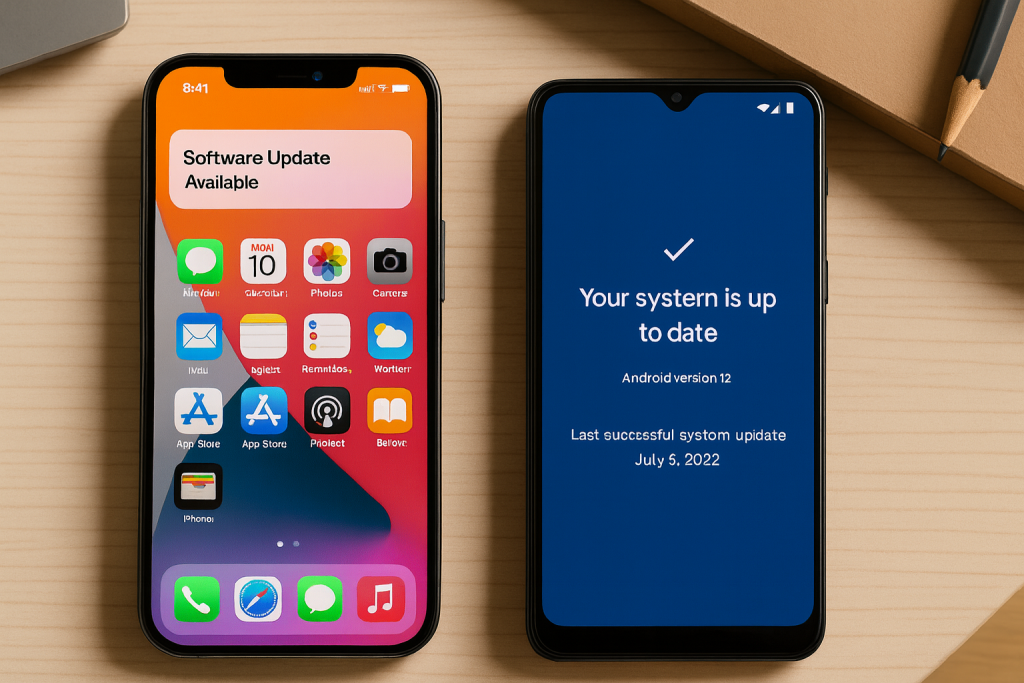
Android: High-End Options, But Inconsistent
Some Android devices, especially flagship models like the Samsung Galaxy S series or Google Pixel, offer blazing speed and competitive processing power. However, performance can be inconsistent across the ecosystem, especially in lower-cost phones. Update policies and software optimization also vary, affecting device longevity and responsiveness.
Practical Advice
- If you want the fastest phone year after year, consider the latest iPhone models.
- For excellent performance on a budget, research well-reviewed Android models from reputable manufacturers.
4. Operating System Updates and Support
iPhone: Consistent, Long-Term Updates
One of the biggest advantages of iPhone is Apple’s robust support for older devices. New iOS updates are released simultaneously for supported models, often for up to five years after launch. This ensures your phone remains secure and feature-rich for longer, which is rare in the smartphone world.
Android: Fragmented Updates
Android updates depend on both Google and individual manufacturers. While Google and a few partners provide timely updates, many Android phones lag behind or receive only a couple of years of support. This can lead to missed security patches and delayed access to new features.
Actionable Advice
- Choose iPhone if regular updates and long-term security are a priority.
- For Android, consider Google Pixel or OnePlus for the best update consistency.
5. App Store and App Quality
iPhone: Curated and Secure
The Apple App Store is highly curated, with strict review processes that help maintain app quality and security. Many developers prioritize iOS for new app releases or exclusive features. Additionally, iOS apps are often better optimized due to the small range of supported device types.
Android: Expansive Selection, More Freedom
The Google Play Store offers a larger selection of apps, and Android users can even install apps from third-party sources. This provides more freedom but increases potential security risks. While top apps are available on both platforms, quality and stability may vary between devices and manufacturers.
Insider Tip
- iPhones tend to get new apps and updates first, especially for creative tools and games.
- Android’s open approach is great for power users and developers who want more control.
6. Privacy and Security Features
iPhone: Advanced Privacy Controls
Apple has positioned itself as a privacy leader, incorporating features like app tracking transparency, on-device processing, and regular security updates. iOS provides users with clear controls over app permissions, location sharing, and data use. This strong emphasis on privacy makes iPhone appealing to users concerned about personal data.
Android: Improved, But Manufacturer Dependent
Android has made significant strides in security and privacy, especially in recent versions. However, the overall experience may vary depending on the device manufacturer and their commitment to updates. Android provides more customizable privacy controls, but they may require more user intervention to configure optimally.
Quick Comparison
- Apple’s unified ecosystem ensures security patches reach all users quickly.
- Android offers advanced customization, but users should be proactive about app permissions.
7. Price, Value, and Resale
iPhone: High Resale Value, Premium Pricing
iPhones are known for their premium price tags, but they also retain their value longer than most Android phones. If you plan to upgrade in a few years, iPhones typically command higher resale prices. Apple also offers a robust trade-in program to make upgrading more affordable.
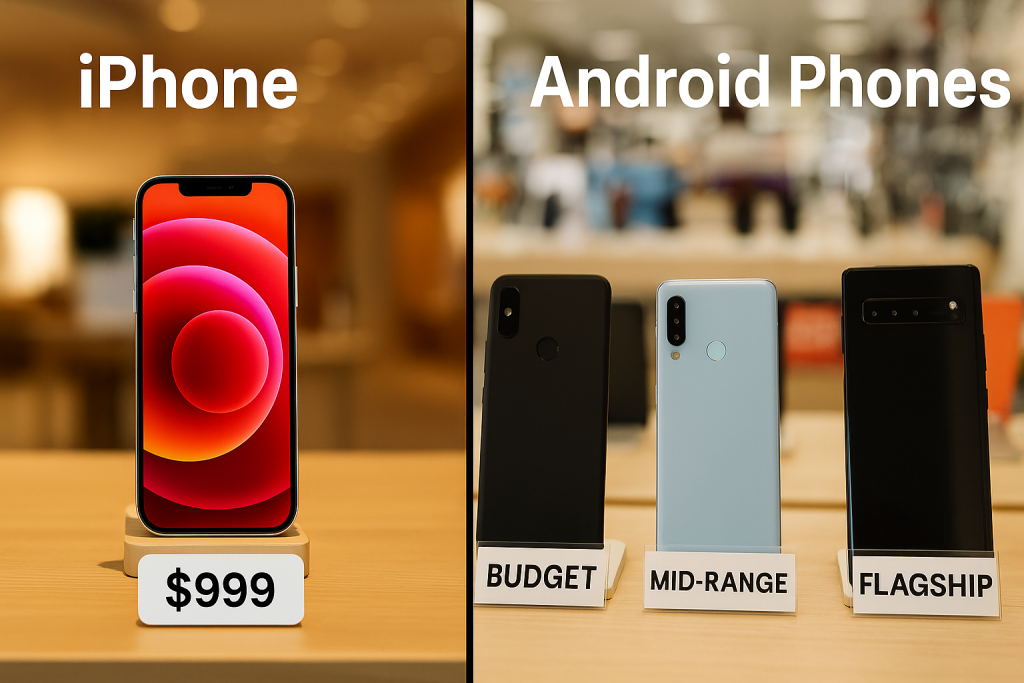
Android: Options for Every Budget
Android phones are available at every price point, from entry-level models to luxury flagships. While some premium Androids rival the iPhone in cost, most offer excellent value for the features provided. However, they tend to depreciate faster in the resale market.
Practical Considerations
- iPhones are a safer investment if resale value matters to you.
- Android is unbeatable for buyers seeking affordable phones with modern features.
Conclusion: Which Is Better – iPhone or Android?
Choosing the best phone depends on your priorities. If you value consistent updates, premium build quality, privacy, and long-term investment, the iPhone is tough to beat. However, if you want more choice, customization, or are shopping on a budget, Android offers unbeatable flexibility.
Ultimately, both platforms have matured to deliver top-notch performance, security, and user experience. By considering your own needs—whether it’s camera quality, app ecosystem, hardware variety, or budget—you’ll be well equipped to make the right choice. No matter which you choose, you’re getting a powerful smartphone capable of enhancing your daily life.
Frequently Asked Questions
Do iPhones last longer than Android phones?
iPhones generally receive software updates for a longer period, which can extend their usable lifespan. Premium Android phones can last just as long with proper care, but budget models may not receive extended support.
Are Android phones more customizable than iPhones?
Yes, Android allows for extensive customization of themes, widgets, home screens, and default apps. iPhones are more limited in this regard but offer a consistent user experience.
Which phone is better for gaming?
Both platforms have powerful devices suitable for gaming. iPhones often have an edge in raw performance and optimization, but high-end Android phones are excellent choices as well.
How should I choose between iPhone and Android?
Consider your priorities: updates, privacy, ease-of-use, customization, hardware variety, and budget. Visit retail stores to try devices in person, and read user reviews for specific models before making your decision.
